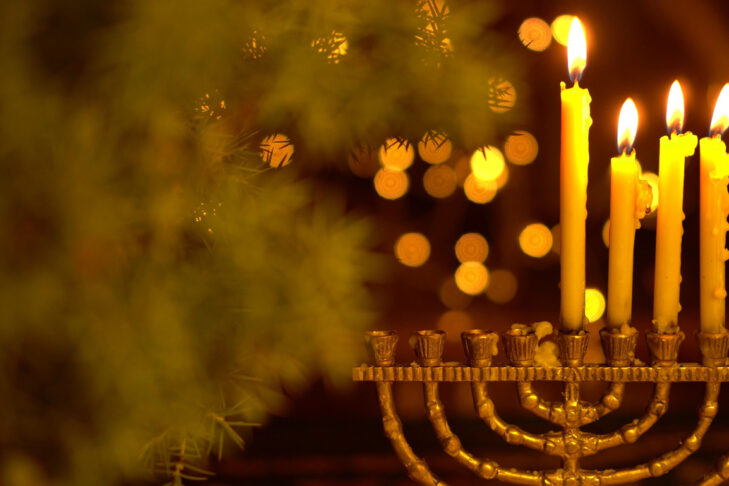In my family, we have a menorah and a Christmas tree. What about yours? If you’re an interfaith family, how do you decide which holidays to celebrate and to what extent? I talked to four families who balance the season in different ways.
The Dunne-Brombergs: Jewish Kids With a Christmas Tree
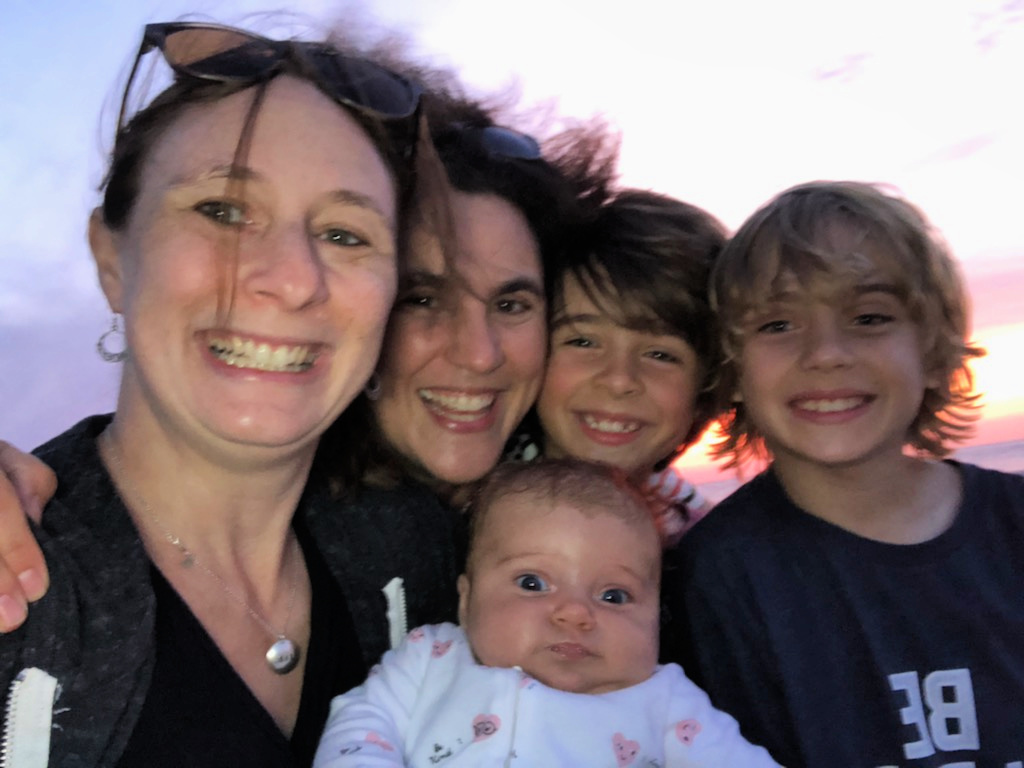
Jodi Bromberg is the CEO of InterfaithFamily, and her wife, Courtney Dunne, grew up Catholic, so she really understands the importance of maintaining balance with her three children.
The couple had their first fight back in their dating days about the Jewish-Catholic conundrum. Her wife had gone to Catholic high school and college; Bromberg, of course, was Jewish.
“I said: ‘I want to raise my kids as Jewish and have a puppy,’” Bromberg recalls. ‘”If you can’t do that, we should end this here.’” It led Dunne to do some soul-searching; needless to say, the couple ended up together.
“Catholicism wasn’t going to work for us because of the gay aspect; there was a social piece for us,” Bromberg says.
Still, she recognizes that Christmas has always been an important holiday for her wife (who now attends temple!), and that a tree has cultural and familial significance. Bromberg acquiesced.
“What I realized was that Courtney was giving me this gift of agreeing to raise our kids Jewish and to be an active participant. If their Jewish connection was so shaky that it depended on whether we celebrated Christmas and had a tree, then I was doing something wrong. It’s one day a year. It’s a tree for a limited time. It brings so much joy to Courtney and to all of us,” she says.
“Our kids have known for a long time that Mama is Catholic and Mommy is Jewish, and because Mama is Catholic we get to celebrate Christmas, too. The thing that’s amazing to me is that kids are able to understand complexity and ambiguity much more than adults, especially around religion.”
The Gendrons: Raising Jewish Red Sox Fans
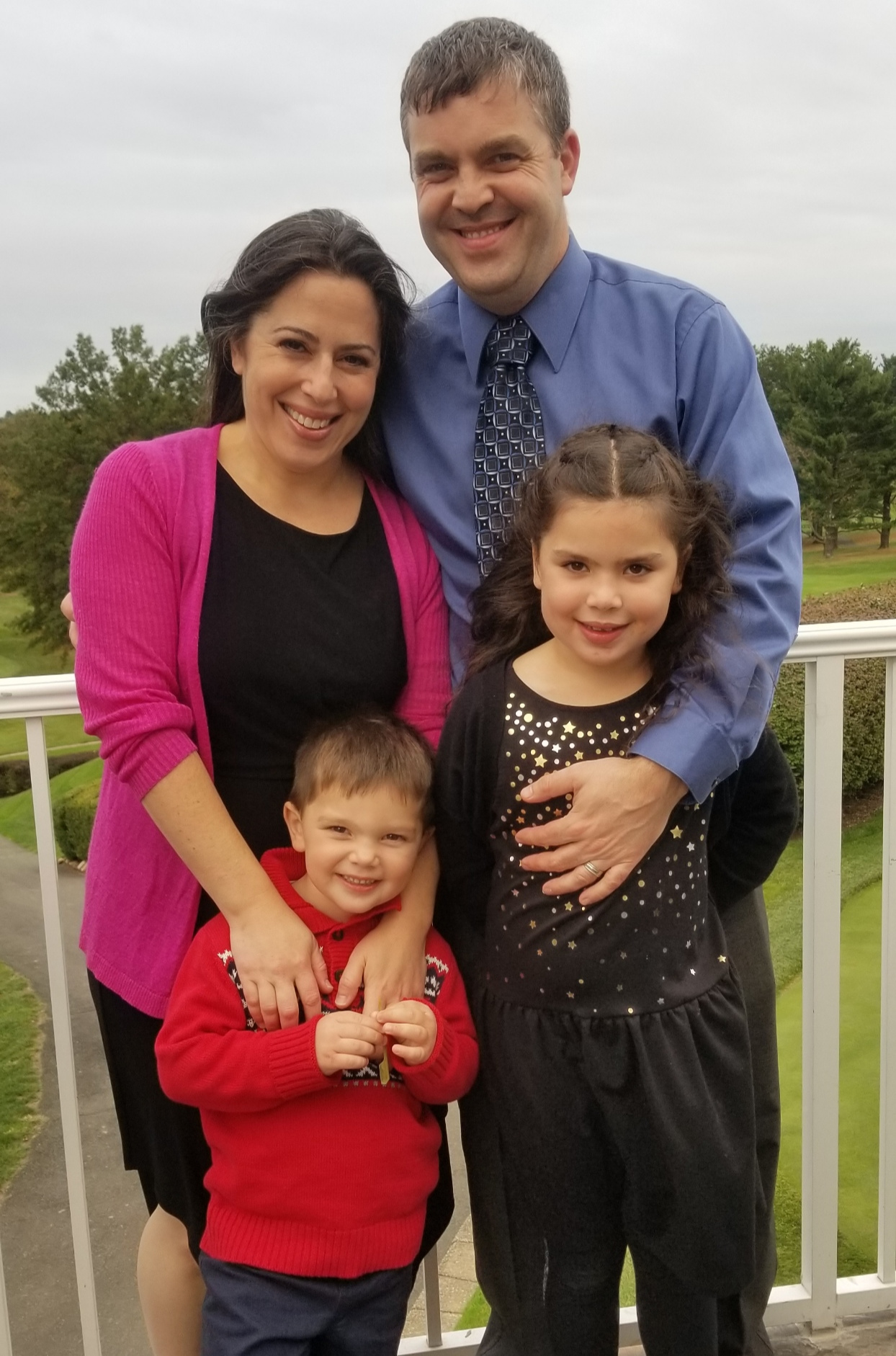
“Before we got married and had kids, we had a deal worked out where our kids would be raised as Jewish Red Sox fans. I’m Jewish and like the Yankees. We both got our religion. This was a real conversation. He couldn’t sneak the kids to Sunday church, and I couldn’t sneak Yankees shirts,” says Stephanie Gendron.
Her husband, Zack, grew up celebrating Christmas but wasn’t particularly religious. But for Stephanie, making sure her children grew up in some kind of a community was paramount.
“It’s more about the culture and community and being part of something. When my daughter was 3, we joined a progressive, welcoming temple in Winchester. There are so many interfaith, interracial, adoptive or same-sex families,” she says.
Still, Zack wanted their children to know the joy of a tree.
“He didn’t connect it to religion,” she says. “And, I’m not going to lie: It’s lovely and smells good and it’s pretty.” Now, the family decorates a tree using Zack’s childhood ornaments, but they refrain from putting up decorations outside. They celebrate Hanukkah at home and spend Christmas with their in-laws (Stephanie’s father-in-law has been known to dress as Santa).
“This is my husband’s childhood. How could I take that from him?” asks Stephanie.
The Bleakneys: A Reformed Jew Married to a Catholic Guy Who Celebrates Kwanzaa, Too
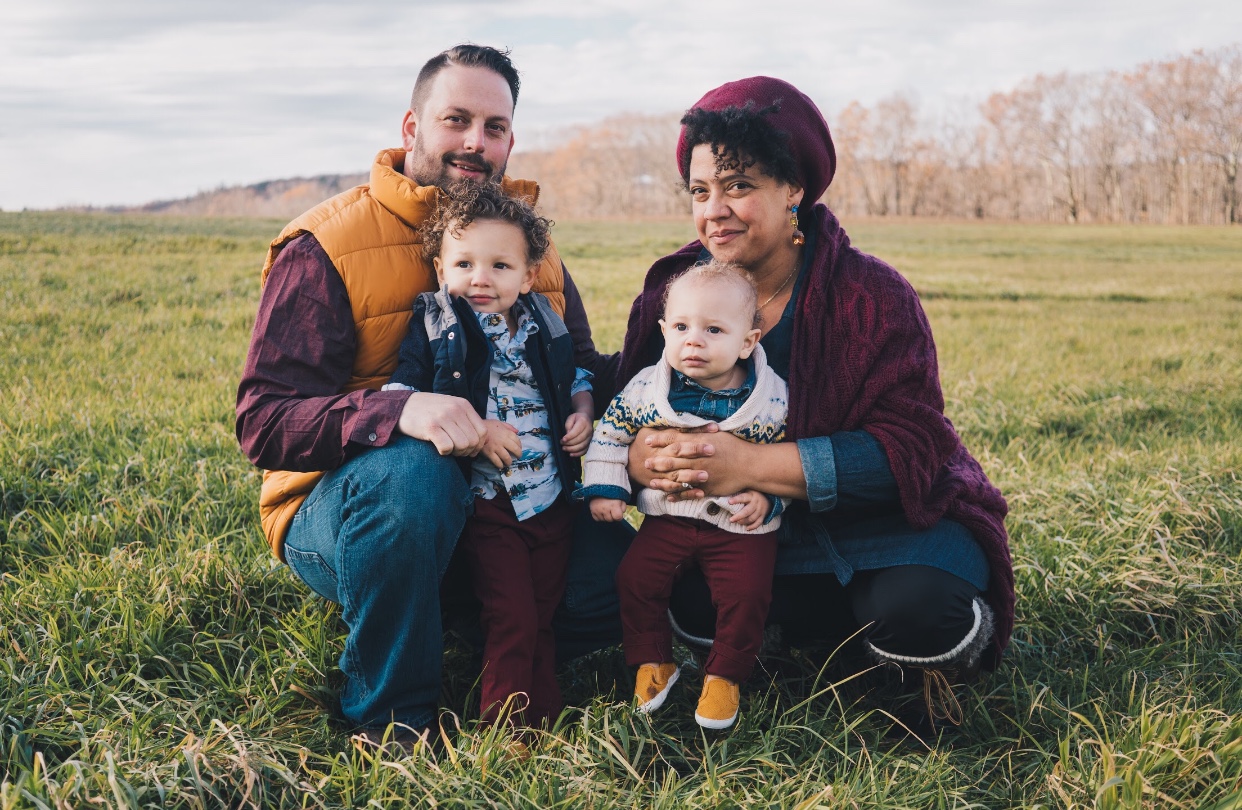
Tovah Raphaelson Bleakney grew up Reform, with a mom who converted. “She’d go full force for Jewish holidays!” Tovah remembers. Her dad was Conservative. But her husband, Charles? A non-practicing Catholic.
“When we were dating, I was very adamant that we’d only celebrate Hanukkah,” Tovah says. Growing up, her temple hosted a seminar on the “holiday debate,” she recalls.
“Even back then, I thought it was more of a black-and-white situation. I remember going to school and kids saying, ‘You have to celebrate one or the other.’ That’s why my mom decided to convert. I was in grammar school when she decided, and her ceremony was the day before my bat mitzvah so she could hold the Torah.”
Then, Tovah got married. And, sure enough, things changed. The family began renovations on their house and had to move in with Charles’ Catholic parents. Tovah was pregnant. It was Christmas. What could she do?
“I’m not going to sit in a corner! I’m going to help with Christmas stuff,” she says, laughing.
Tovah came to realize that she mainly felt conflicted about the overload of Christmas gifts and toys, but at the same time, she wanted her children to get excited about Hanukkah, too.
“Plus, I’m a woman of color, so I was also trying to incorporate Kwanzaa, too! I want to incorporate everything that embodies my life,” she says.
Out of this holiday potpourri, the family worked out a system with the support of Charles, a “laidback engineer.”
They have a tiny tree; Charles gamely sets up Hanukkah decorations. They emphasize that hard-working adults give gifts, not Santa (though the kids aren’t allowed to ruin the illusion for pals). The kids get a few Christmas and Hanukkah treats but also have themed Hanukkah nights, such as candy night or family board game night.
“I’m trying to make the holidays more experience-based,” she says.
The Berg Powers Family: A Birthday Christmas
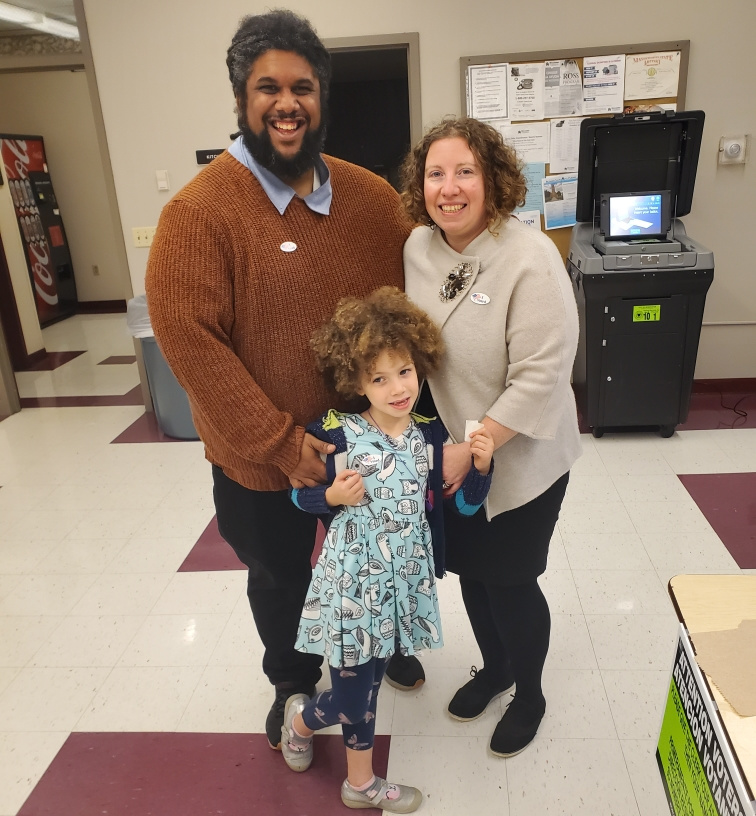
Cara Lisa Berg Powers was raised by a Catholic dad and a pagan mom. (“My 6-year-old goes around saying her grandmother is a witch,” she laughs.) Cara made her confirmation and went to mass every Sunday growing up, but she left the church at 15. Her parents divorced, and while she moved a lot during her childhood, her grandparents’ house, complete with a holiday tree, remained a constant.
Later, she married a devoted Jew who was raised by converted parents. The social justice aspect of Judaism appealed to Cara, who runs the Transformative Culture Project, which uses arts and culture as tools for economic and social development with young people in Boston. She converted six years ago.
She still celebrates Christmas with her dad, though, who has a tree-decorating party every year to celebrate his birthday.
“He was born on Christmas Day in 1953. He was due on St. Patrick’s Day in 1954. He wasn’t supposed to survive, let alone be a grandfather. He has cerebral palsy, and he has a Christmas baby identity. His mom embedded that in him,” she says.
Now, her young daughter, Ella, helps to decorate the tree at Cara’s father’s house, and her husband is OK with it. And to offset the commercialization of the season, the family maintains an advent-style calendar in which each day offers an act of charity or justice.
“That’s our big Hanukkah tradition,” she says.


